In a big empty house high in the hills near Glendale, California, Daron Malakian is singing along to an old outlaw country tune. It’s called “Waymore’s Blues,” a classic Waylon Jennings ballad from 1975. It’s a gently loping track set to acoustic guitar, organ, and a playful bass groove. The lyrics are a little bit about the demise of country music originator Jimmie Rodgers and, as Waylon himself used to say, a lot about nothing at all.
Malakian cranks it up on his phone, and the System of a Down guitarist can’t help but join in: “Well, I woke up this mornin’ it was drizzlin’ rain / Around the curve come a passenger train / Heard somebody yodel and a hobo moan / Jimmie he’s dead, he’s been a long time gone…”
As the rhythm rolls on, Malakian nods with a smile, his face framed by long black muttonchops that end as points below his chin like fuzzy tusks. He also says the song, with its swagger that he describes as “that Waylon Jennings mosey kinda way,” is a direct influence on his own “You Destroy You,” a track on his new album, Addicted to the Violence, from his other band, Daron Malakian and Scars On Broadway.
As ever with Malakian, still best known as the anxious, brilliant, obsessive sound scientist of System of a Down, Waylon’s tempo is just one ingredient mashed up with other contrasting inspirations. In the case of “You Destroy You,” he leans harder into the rhythm and adds a bright folk melody from the place where Asia, Eastern Europe, and the Middle East meet, as he sings of a friend teetering over the edge: “I can see easily where you are / You ended up in a place that’s gone too far.”
The Jennings reference comes up as he talks about the music that has moved him through the years, from Slayer to the Velvet Underground, and Norwegian Black Metal to Christopher Cross’s yacht rock standard “Sailing.” He’s just as crazy for N.W.A and the Beach Boys, Miles Davis, the Ramones, the Bee Gees, and King Tubby. His list of favorites goes on and on.
“I love it all, man. There’s a place for it all. There’s a mood for it all,” Malakian says. “There’s been a time in my life when each one of those things and more have influenced me. I’ve gotten obsessed with them and they have touched me.”
His music has always been multidimensional, fueling his wildest dreams of noise and melody, rage and hilarity. Addicted to the Violence, released July 18, marks his third album with Scars On Broadway and his first release with the band in seven years. In the meantime, he’s now come to terms with the real possibility that System of a Down, despite ongoing massive success as a live act, may never record another studio album.
That understanding has finally freed him again as an artist, he says. Since the last SOAD (as many fans refer to them) releases, 2005’s Mezmerize and Hypnotize, which both hit No. 1 that same year, Malakian has held back from releasing as much solo material as he could. After the band’s four-year hiatus ended in 2010 with a return to live shows, he kept any new music he wrote in reserve for a potential SOAD project. Those hopes have been sidelined within the band by serious creative differences, and are mostly behind Malakian now.
“System of A Down has been such a blessing to me in my life and has given me everything I wanted in my life, but then there’s a side of me that’s an artist and a songwriter, that sometimes I feel like waiting for System has held me back,” Malakian says. “It’s partly why I haven’t put out so many records through the years by myself.
“If you asked me 10 years ago, I would probably still be like, well, okay, maybe,” he goes on about a possible SOAD studio reunion. “But I’m at a place now where I feel more free and a little bit more comfortable, and I’m not even sure I want to do another System of a Down record. I think those records that we have stand up. I will always be proud of those records.”
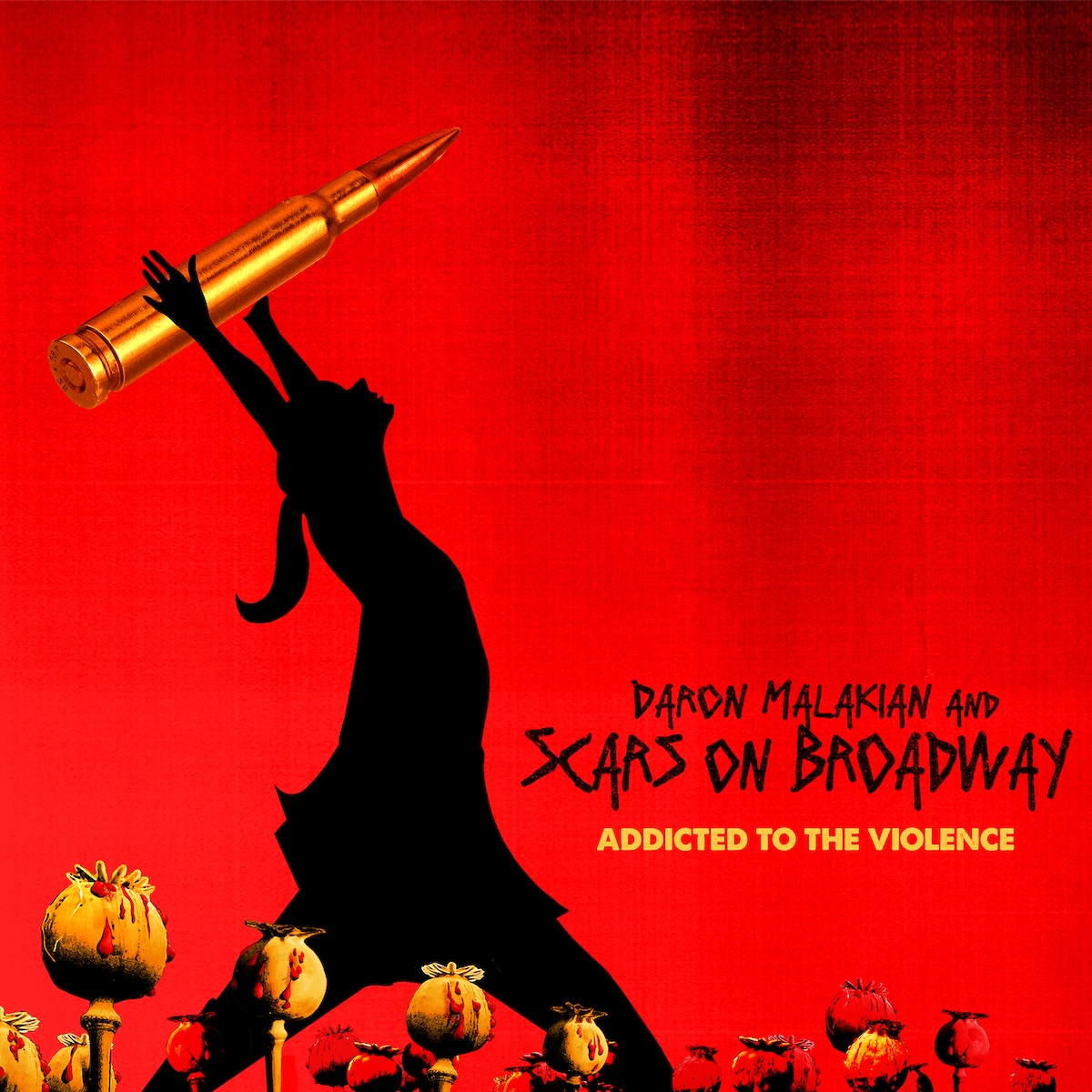

They played a vein of heavy metal that was hard to classify, noisy and aggressive at points, also shaped by Dada and Armenian folk, helping to redefine what hard rock can be: loud, delicate, serious, hilarious. Regardless of the creative conflicts, Malakian considers himself and his fellow SOAD members—singer Serj Tankian, bassist Shavo Odadjian, and drummer John Dolmayan—“brothers” and “a family.”
In many ways, Malakian was the complex central nervous system of that multiplatinum act, as a writer and guitarist, sharing vocals with frontman Serj. The music he makes now with Scars On Broadway, with the help of a rotating cast of musicians beside him, is also recognizably his. A key collaborator on the new album is Scars guitarist Orbel Babayan, who co-wrote three songs.
“The DNA stays there, but I want to do things that I haven’t explored before, colors that I haven’t used before,” Malakian says.
“Who am I to say what people should like or shouldn’t like? The stupidest thing I hear, though, is when [someone likes] a Scars song—I have actually read this in comments before—it’s like, ‘This song kicks ass. I wish it was a System song.’ And I’m like, if you like the song, you like the song. Who gives a damn what the band or brand it’s under?”
His proudest moments as a songwriter are often the least metal, and he points to SOAD’s “Aerials, “Soldier Side,” “Lost in Hollywood,” the early Scars track “Insane,” and the new album’s melancholy title song as some of his best.
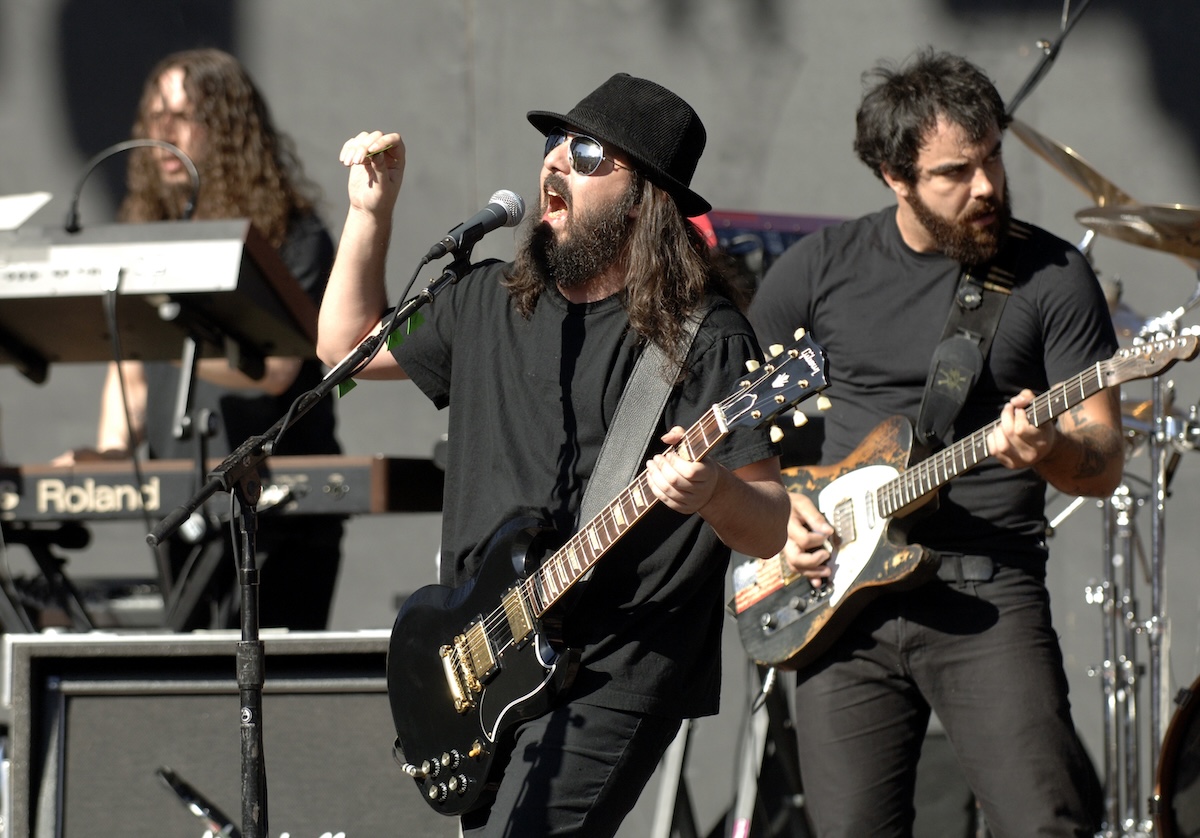

“As a writer, those songs just feel like an achievement,” he says. “I can go to these places and I can be emotionally heavy as well as attitude-heavy. And as I go along with my writing, I see myself going deeper in those directions than I do with songs that start mosh pits.”
One highlight on Addicted to the Violence is “The Shame Game,” a mini-epic that opens with an ominous guitar riff, then becomes like a ‘60s psychedelic pop song, before shifting into a swelling Zeppelinesque middle section. There is also “Satan Hussein,” a crazed track of intense metal guitars, staccato piano echoing the Stooges’ “I Wanna Be Your Dog,” and a ranting vocal inspired by a trip Malakian took with his mom in 1989 to visit Armenian relatives in Iraq.
He sings: “I’m your neighborhood watch with a machine gun in my crotch / See the victims in the streets when you fuck while you eat.”
While they were visiting his extended family, Malakian was a kid just discovering thrash metal. He brought a stack of cassettes and heavy metal T-shirts. In heavy rotation on his headphones was Slayer’s first indie release, Show No Mercy. It was also peak Saddam Hussein time, and the dictator’s picture was hung everywhere, as he got to know his grandparents, aunts and uncles, and cousins in Baghdad and Kirkuk.
Years later, after the first tidal wave of success with SOAD’s second album, 2001’s Toxicity, he was able to help get his family members to the U.S. By then, there had been an American-led invasion, the fall of Hussein, and a rising ISIS jihadist terrorist movement. “My family was fortunate enough that I made some money that I could arrange and hire lawyers and do all this stuff to bring all those people to the United States,” Malakian says. “It’s something that I’m proud of that I was able to do for my family. They would’ve been in a lot of danger.”
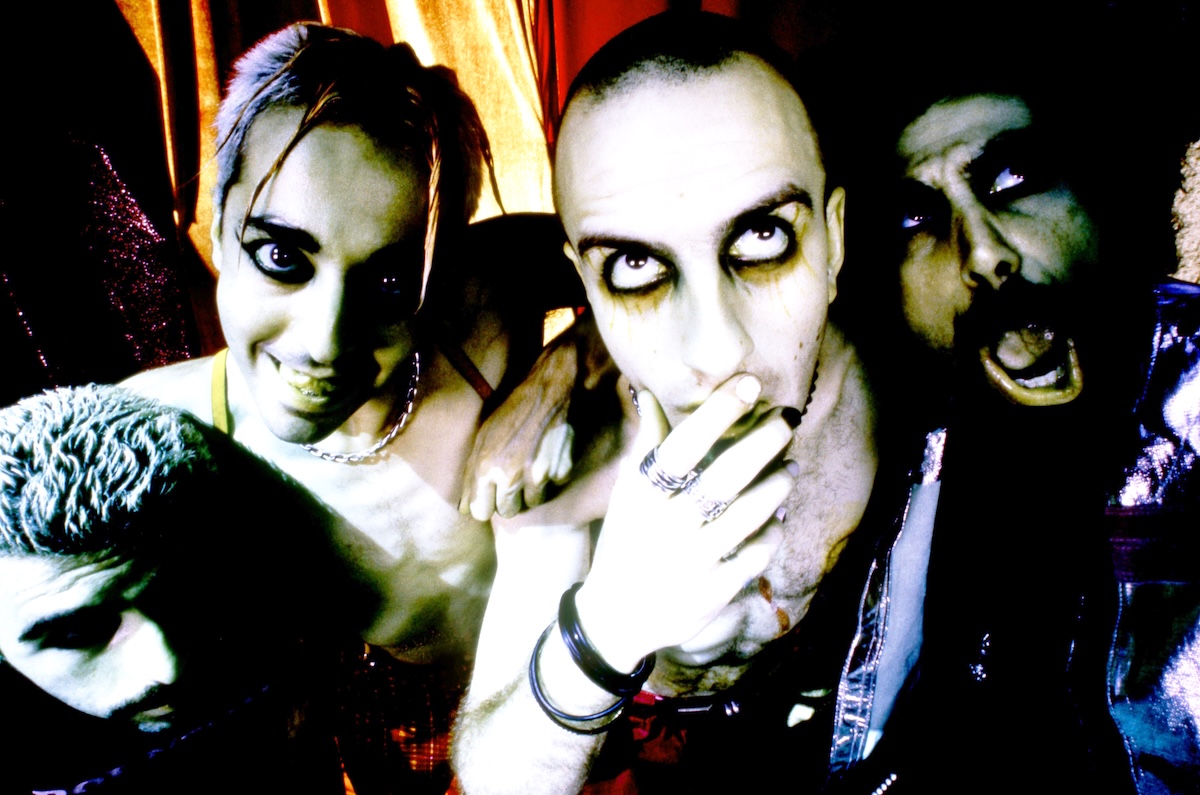

On this afternoon, Malakian is a few days from his 50th birthday, and he still looks a lot like a heavy metal commando. He’s relaxed, in the only furnished room in this three-level Tudor home, dressed in a crisp black T-shirt, black-and-gray camo pants, a pair of black Crocs, his fingernails also painted black. The house sits on three acres, with streams and a dense private forest out back, and is less than 20 minutes from downtown Los Angeles.
It’s the kind of home you can get when your multiplatinum hard rock band is playing to packed stadiums around the world, as SOAD now does regularly. Malakian got the place months ago, but still hasn’t moved in, and probably won’t until later this year. When he first showed it to his parents, he got emotional, he says.
“I cried because I know where we came from,” he says of his parents, who emigrated as a young Armenian couple from Iraq in the 1970s, just in time for Malakian to be born an American in Hollywood. “I never thought in my life that I’d have a place like this. I’m almost not ready to move in, because sometimes I feel like, ‘Can you live in a place like this?’”
“Dude, my life would’ve been so different if they didn’t move,” he adds, eyes widening, imagining his fate in Iraq under Hussein. “I could’ve ended up as a soldier in Desert Storm. I would’ve ended up maybe dead. It’s this alternate life that I know could have existed for me that makes me wake up every day and really appreciate my parents and that sacrifice because they came here with nothing.”
He spent much of his childhood growing up on the eastern side of Hollywood, an experience that continues to shape him. It wasn’t the Hollywood of movie stars and paparazzi but of drug use and prostitutes on nearby Santa Monica Boulevard. After the family moved to a house in suburban Glendale, his parents bought him an electric guitar and an amplifier for his 12th birthday. Within a couple of years, he was writing songs.
Once he was mobile as a teen, he returned to cruise Hollywood Boulevard and the Sunset Strip with his friends. At the time, glam metal still ruled the clubs: the Whisky, the Roxy, Gazzarri’s, the Coconut Teaszer.
“The streets were full of big hair and chicks. And it was just my dream: one day I’m gonna start a band and I’m gonna play this shit. That was my goal,” he remembers.
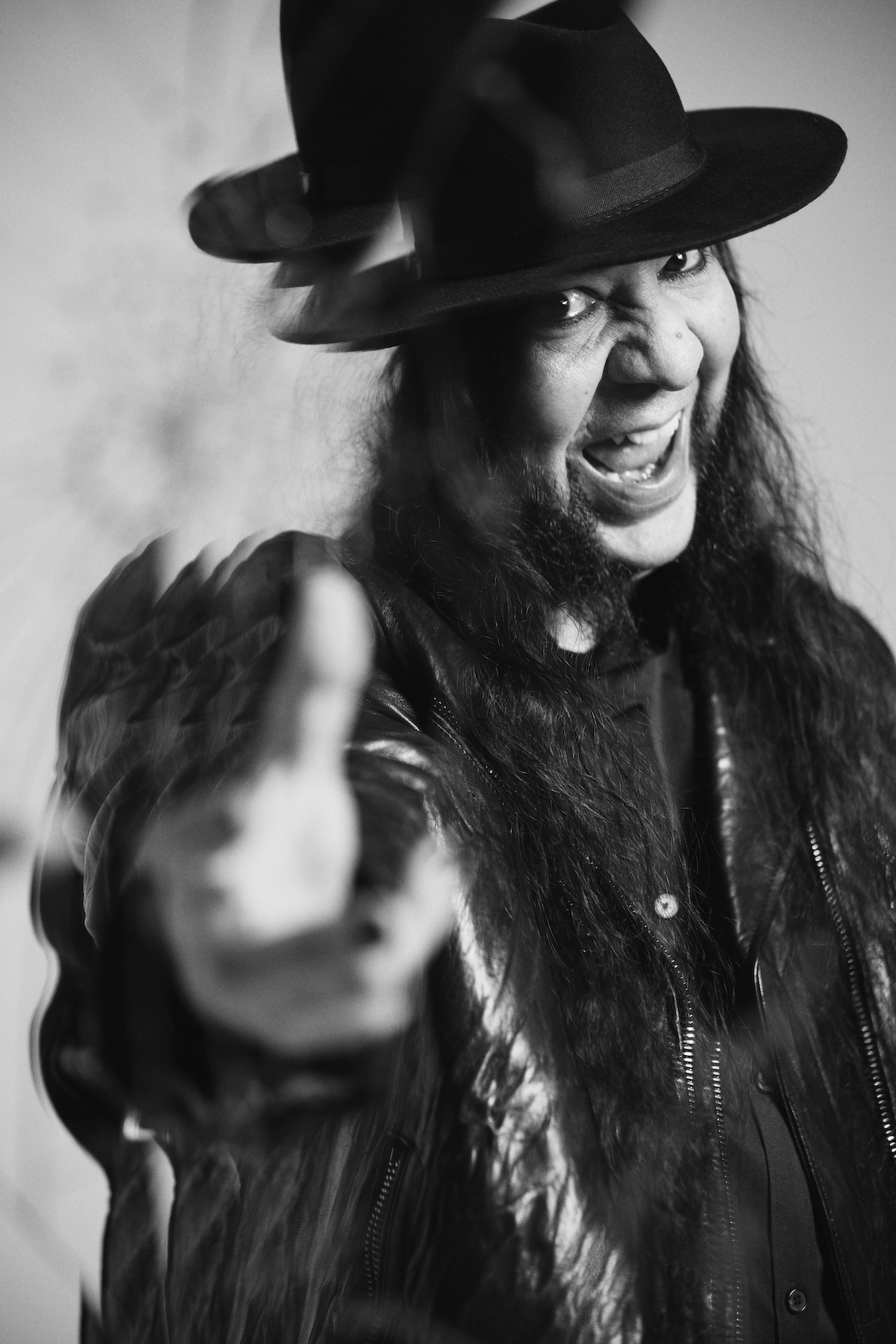

Malakian was 17 when he first met and worked with Serj in the band Soil, which led to SOAD.. Once producer Rick Rubin signed them to Columbia and his American Recordings label, things accelerated quickly. None of them—not Rubin or the band members themselves—expected the fanatical following that would embrace this eccentric brand of metal played by four Armenian dudes.
By the time of Mezmerize and Hypnotize, there was increasing creative tension between Malakian and Tankian, who was frustrated with aspects of the band’s musical direction and his share of the songwriting. Malakian had asserted a more dominant role as writer and co-producer. The singer made it clear that he needed a hiatus. As Tankian wrote in his 2024 memoir, Down With the System, those differences led to their hiatus then, and the ongoing inability to record a new album now.
While Malakian says he hasn’t read Tankian’s book, he’s aware of the issues raised. “There’s his viewpoint on how things went down, and there’s my viewpoint on how things went down,” he says, but adds, “Serj and I have never hated each other. And I’ll be honest with you, there’s nothing that I ever did in those days to hurt Serj or purposely hurt Serj in any way, shape, or form. I love Serj. Serj is my brother. He’s my family.”
At the time of the sessions for the final albums, Malakian was getting regular calls from Columbia Records CEO Don Ienner. Rick Rubin called. So did their manager. They all had one question: So what’s going on? You’re writing?
“I’m the guy that’s getting these phone calls in the band,” Malakian says now. “I’m the guy that’s got this fucking pressure on my shoulders, man. And I’m young. I haven’t reached peak wisdom yet. I’m taking all this in, and all this is happening to me too—all this fame and crowds and this album has become this big deal now. There’s money riding on all this. So, how I reacted to that and how I became what I became in the middle of all that, you gotta look at things in my shoes too.
“There was a time during Mezmerize and Hypnotize that I might’ve even held on really tight, because I could see that we were changing. [Serj] was going in a different direction. He might not have been completely happy. And I was like, these records have to be great no matter what we’re going through, even if they’re the last ones. So I might’ve taken the bull by the horns a little tightly.
“None of it was to hurt anybody. In fact, it was me trying to do what I thought was best for the band and best for our legacy and best for our albums.”
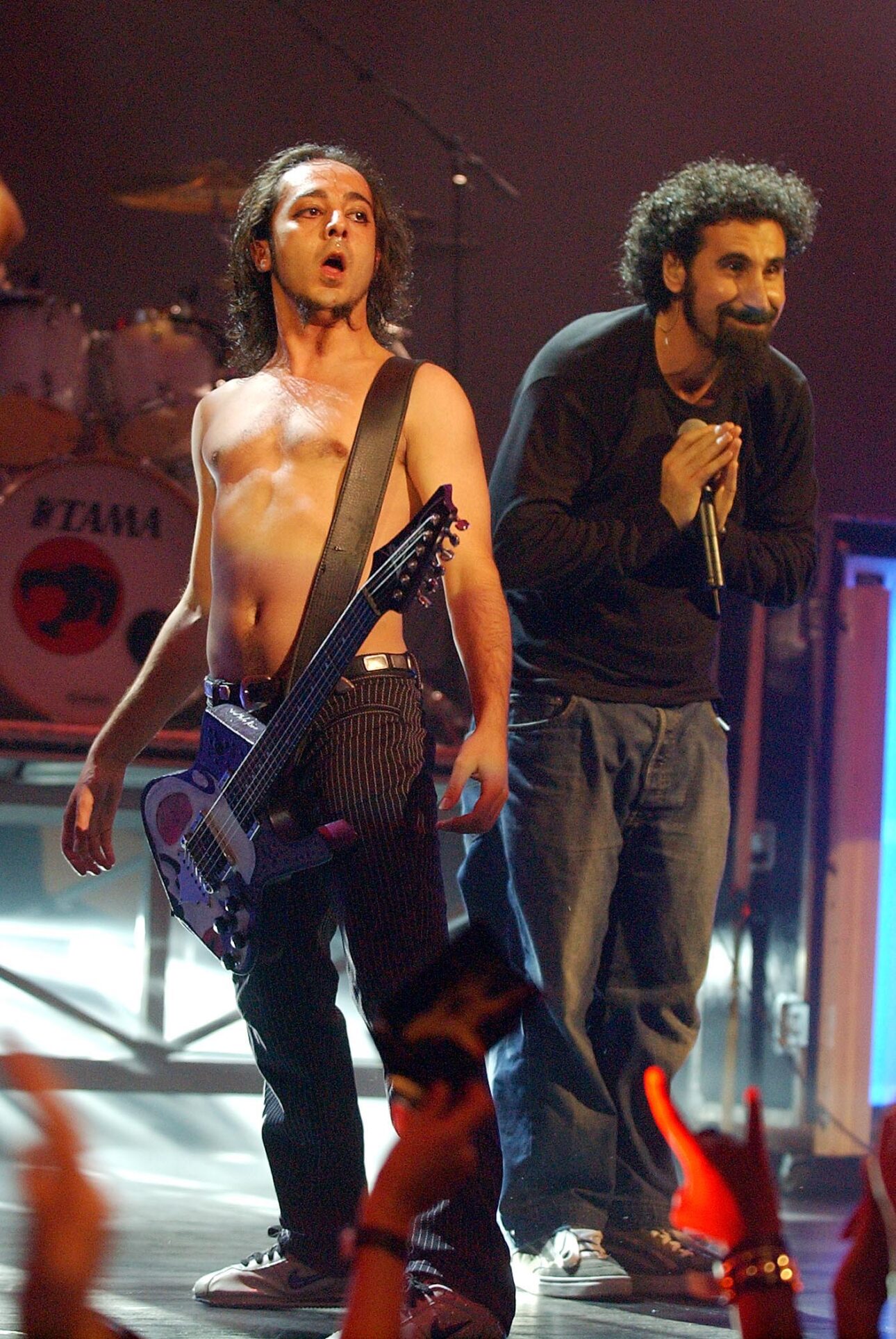

During the hiatus that followed, Tankian recorded and released a debut solo album, Elect the Dead, in 2007, and Malakian did the same the following year with a new band (and self-titled album) called Scars On Broadway. Both were well-received by fans and critics.
While Tankian embraced his new freedom as a solo act and toured heavily, Malakian soon hit a wall.
At first, Malakian was fully committed to this next chapter. His band had a deal with Interscope Records and a real budget, but during an initial European tour, the experience felt a little too much like starting over to Malakian. Just as the band was about to begin a U.S. tour, he cancelled all band activity.
He was depressed, essentially in mourning for the loss of SOAD at their popular peak, and its uncertain future. “I wasn’t down with the hiatus,” he explains now. “I just needed to be paused. I’m just in a place where I feel like my wife just died, and I just brought in this new chick, and I’m trying to recreate that love.
“The years that came after that, there were some dark times for me,” he adds. “I self-medicated, and I did a lot of things. That just wasn’t the right time for me to be doing something brand new like that.”
After SOAD reconvened for live shows a few years later, things didn’t get much better in terms of recording a new album. The creative impasse remained. But the hard rock quartet unexpectedly agreed in 2020 to record two new songs to raise awareness and funds after war broke out between Armenia and Azerbaijan in a dispute over the Nagorno–Karabakh region, a largely ethnic-Armenian territory also known as the Republic of Artsakh.
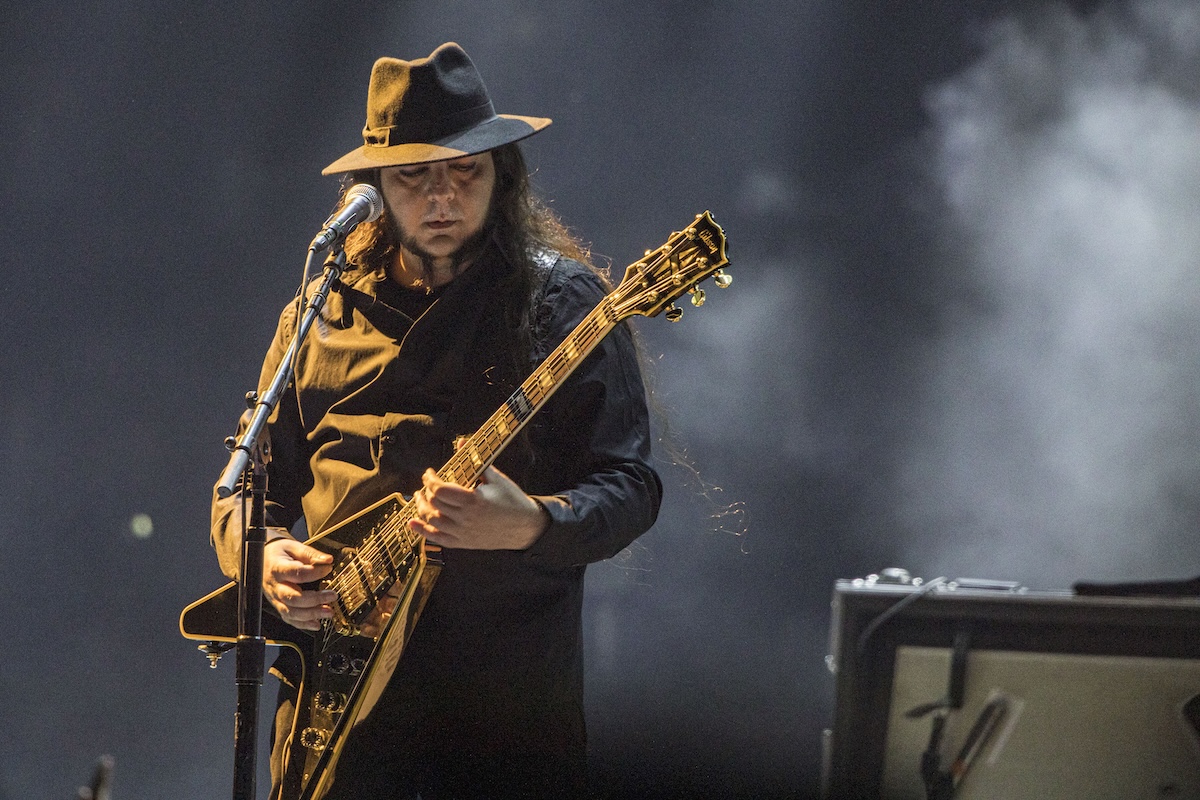

The band moved past their disagreements and recorded two songs written by Malakian: “Protect the Land,” originally slated to be on the new Scars album, and “Genocidal Humanoidz.” Both songs are now part of the current SOAD live set list.
“I came into it like, if we’re gonna work together, you guys gotta let me do my thing,” he says. “I’ve got to be able to do what I do, without someone feeling resentment towards me. And we’re not here for a long time. It’s these two songs. We’re doing it for our people.”
SOAD haven’t released an album of new material in two full decades, an eternity in the life of a band, and yet the hard rock quartet is more popular than ever. In April and May, SOAD played a nine-date tour of packed stadiums and one race track in South America. They have another six North American stadium dates in late August and September.
Now and then, the band members get together for dinner unrelated to any tour or project.
“It’s nice to have my friends back. I really care for those guys. I really enjoy being around them, too. I always have,” Malakian adds with a laugh, “if you take the band out of the equation, you know?”
It turns out that their hiatus only heightened demand for SOAD.
“We haven’t made any [new] records, but those albums have lived with people,” he says of SOAD’s catalog. “It seems like a lot of younger people have just discovered some of it, because when I look into the audience, I see people who are 18, 19, 20, 21. They weren’t born yet when we made our last record.”
At the same time, the band leader is continuing to flex his creative impulses for new music with Scars On Broadway. Unlike SOAD, Scars is very much a DIY project now, with no barriers. He’ll be playing shows with its current lineup of players later this year, with a stop in December back in Hollywood at the Palladium on Sunset.
“I’m blessed to have both Scars and System. I don’t know what more I could ask for as an artist, man,” Malakian says. “I have two bands, and both seem like people want to hear from those two bands. It really is special. It’s like your fantasy life has just come true.”




